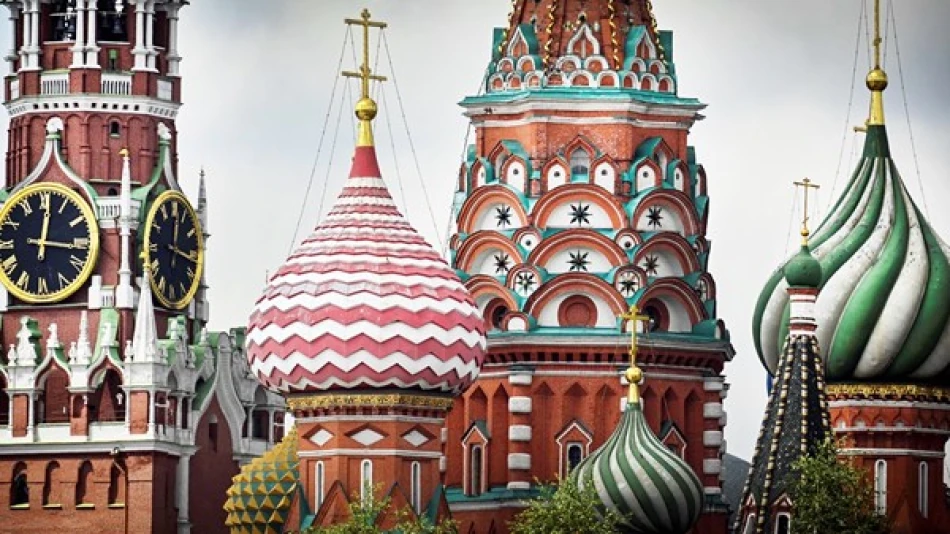
Kremlin Anticipates Arduous Negotiations with Kyiv Amid Ongoing Tensions
Russia and Ukraine Brace for "Very Difficult" Istanbul Talks as Trump's 50-Day Deadline Looms
The Kremlin has set expectations low for Wednesday evening's peace talks in Istanbul, describing the upcoming negotiations with Ukraine as "very difficult" and dismissing hopes for rapid diplomatic progress. The third round of talks comes under mounting pressure from U.S. President Donald Trump, who has given Russia a 50-day ultimatum to reach an agreement with Kyiv.
Kremlin Dampens Diplomatic Expectations
Kremlin spokesperson Dmitry Peskov made clear that Moscow anticipates a challenging session ahead. "Our delegation has left for Istanbul, and talks are scheduled for this evening. No one expects an easy path—it will be very difficult," Peskov told reporters during a press conference. He emphasized that proposals from both sides remain "completely contradictory," suggesting fundamental disagreements persist on core issues.
This pessimistic tone from Moscow signals that Russia may be positioning itself for prolonged negotiations rather than seeking quick resolution, potentially testing Trump's patience and timeline.
Ukraine Calls for "Constructive" Russian Approach
Ukrainian delegation sources struck a more hopeful note, though they placed the burden of progress squarely on Moscow's shoulders. "Everything depends on whether Russia will stop using ultimatum language and adopt a constructive position," a Ukrainian source stated. "This will determine whether results can be achieved in this meeting."
The contrasting rhetoric highlights the deep gulf between the two sides' negotiating positions, with Ukraine demanding Russia abandon its confrontational stance while Moscow appears unwilling to soften its approach significantly.
Turkey's Strategic Mediation Role
The talks, scheduled for 7:00 PM local time (4:00 PM GMT), will be hosted by Turkish Foreign Minister Hakan Fidan, underlining Turkey's growing importance as a regional mediator. Turkish officials held preliminary meetings with the Ukrainian delegation in Ankara, suggesting Ankara is actively working behind the scenes to bridge differences.
Turkey's involvement reflects its unique position as a NATO member that maintains diplomatic ties with both Moscow and Kyiv, making it one of the few countries capable of facilitating such high-stakes negotiations.
Trump's Pressure Campaign Creates New Dynamics
The Istanbul talks carry added weight due to Trump's 50-day deadline for Russia to reach an agreement with Ukraine. This timeline represents a significant shift in U.S. diplomatic strategy, moving from open-ended support for Ukraine to setting concrete deadlines for resolution.
For Russia, Trump's ultimatum creates a delicate balancing act. Moscow must appear engaged in negotiations to avoid potential consequences while avoiding concessions that could be seen as capitulation to U.S. pressure.
For Ukraine, the deadline raises questions about long-term American support and whether Kyiv will face pressure to accept terms it might otherwise reject.
Market and Geopolitical Implications
The diplomatic developments are being closely watched by energy markets, defense contractors, and European policymakers. Any breakthrough could lead to significant shifts in global commodity prices, particularly for grain and energy exports from the region.
However, the Kremlin's downbeat assessment suggests investors should prepare for continued uncertainty rather than immediate resolution. The "completely contradictory" positions described by Peskov indicate that even if talks continue, substantial gaps remain on fundamental issues.
The Road Ahead
With both sides publicly lowering expectations, the Istanbul talks appear more likely to serve as a diplomatic checkpoint than a breakthrough moment. The real test will be whether either side shows flexibility on core demands or whether the meetings simply reinforce existing deadlock.
Trump's 50-day timeline adds urgency to proceedings, but Moscow's pessimistic tone suggests Russia may be prepared to test American resolve rather than rush toward compromise. The outcome of these talks will likely determine whether diplomatic engagement continues or whether the conflict enters a new phase of escalation.
Most Viewed News

 Layla Al Mansoori
Layla Al Mansoori






